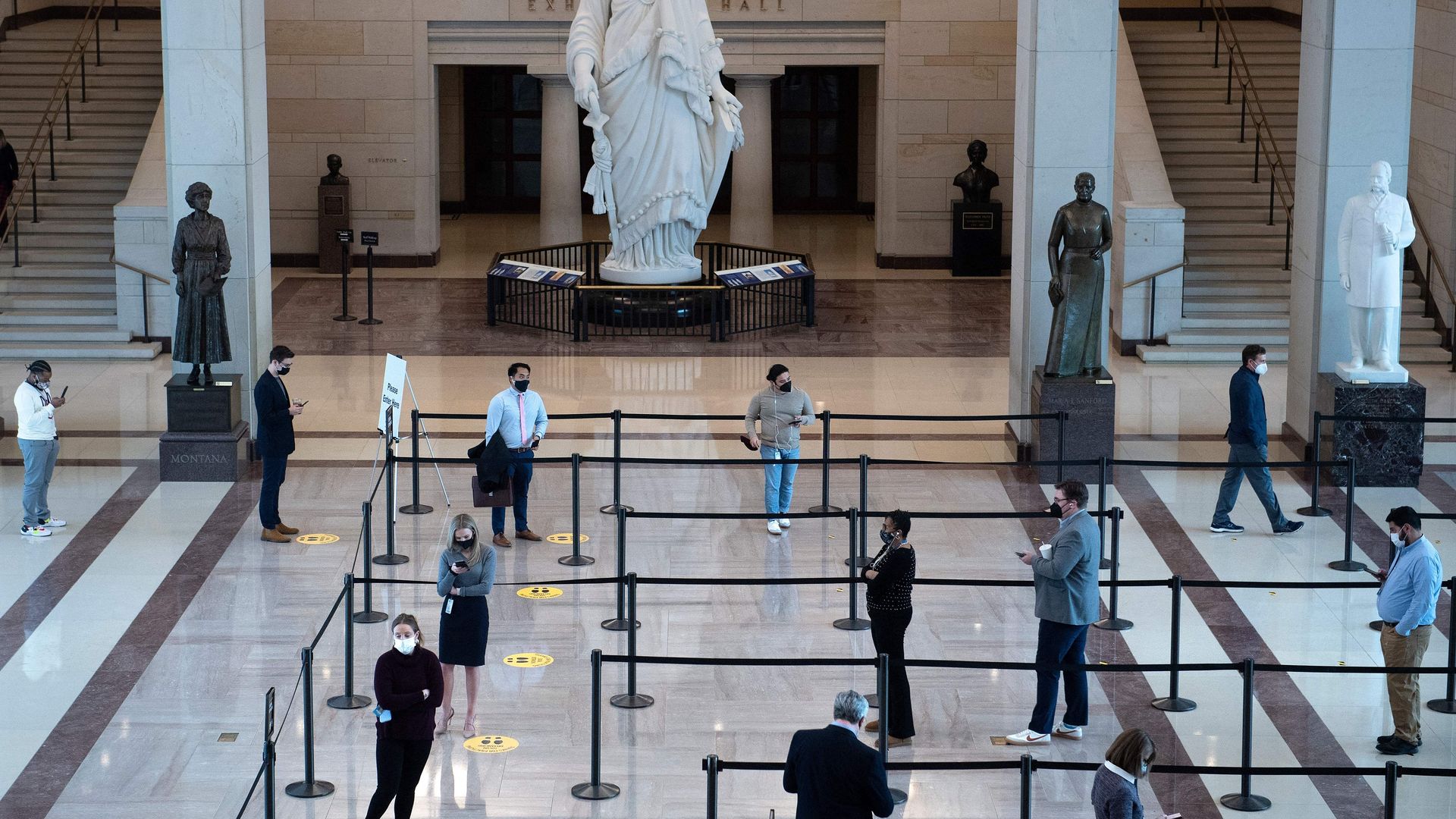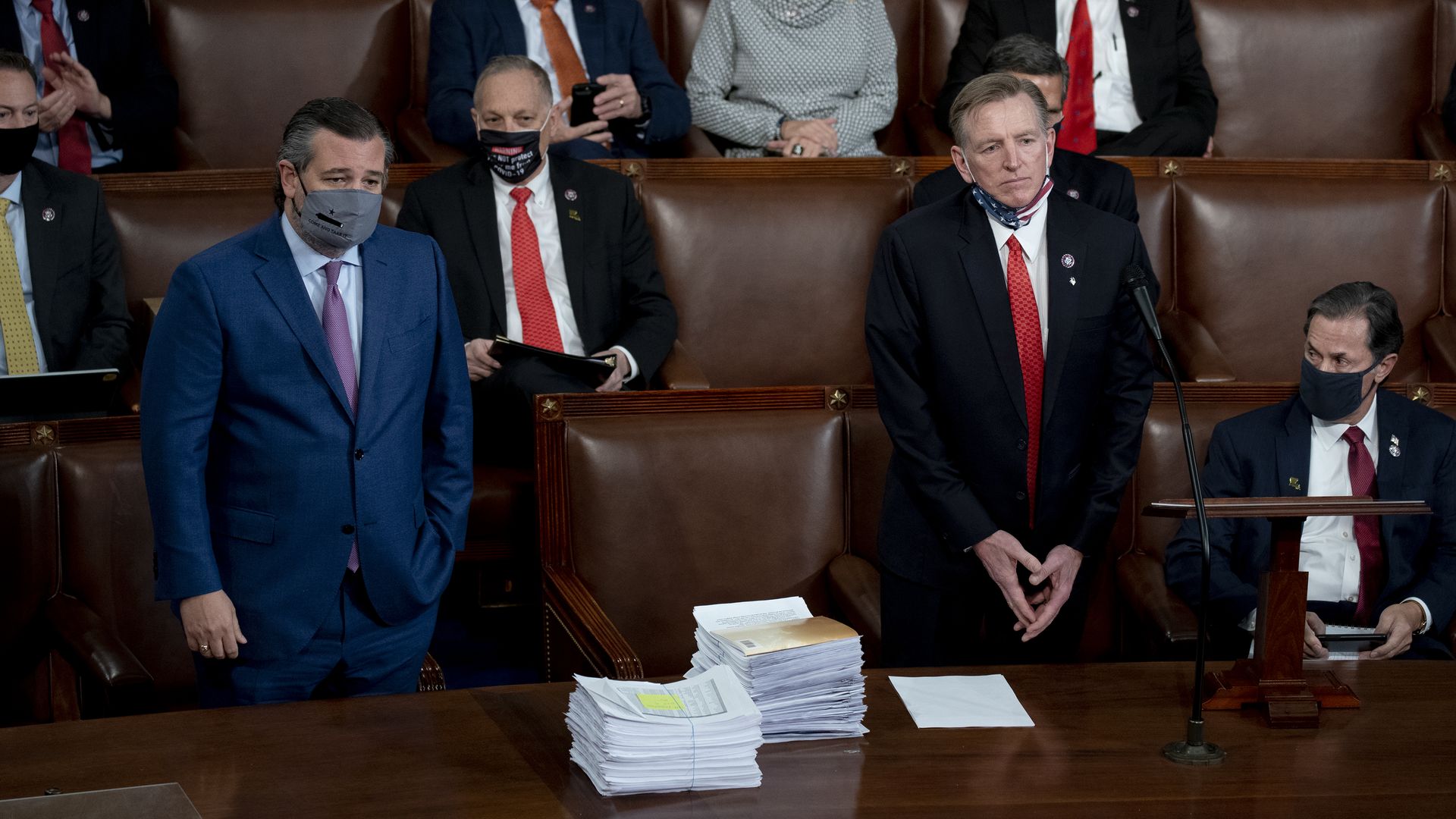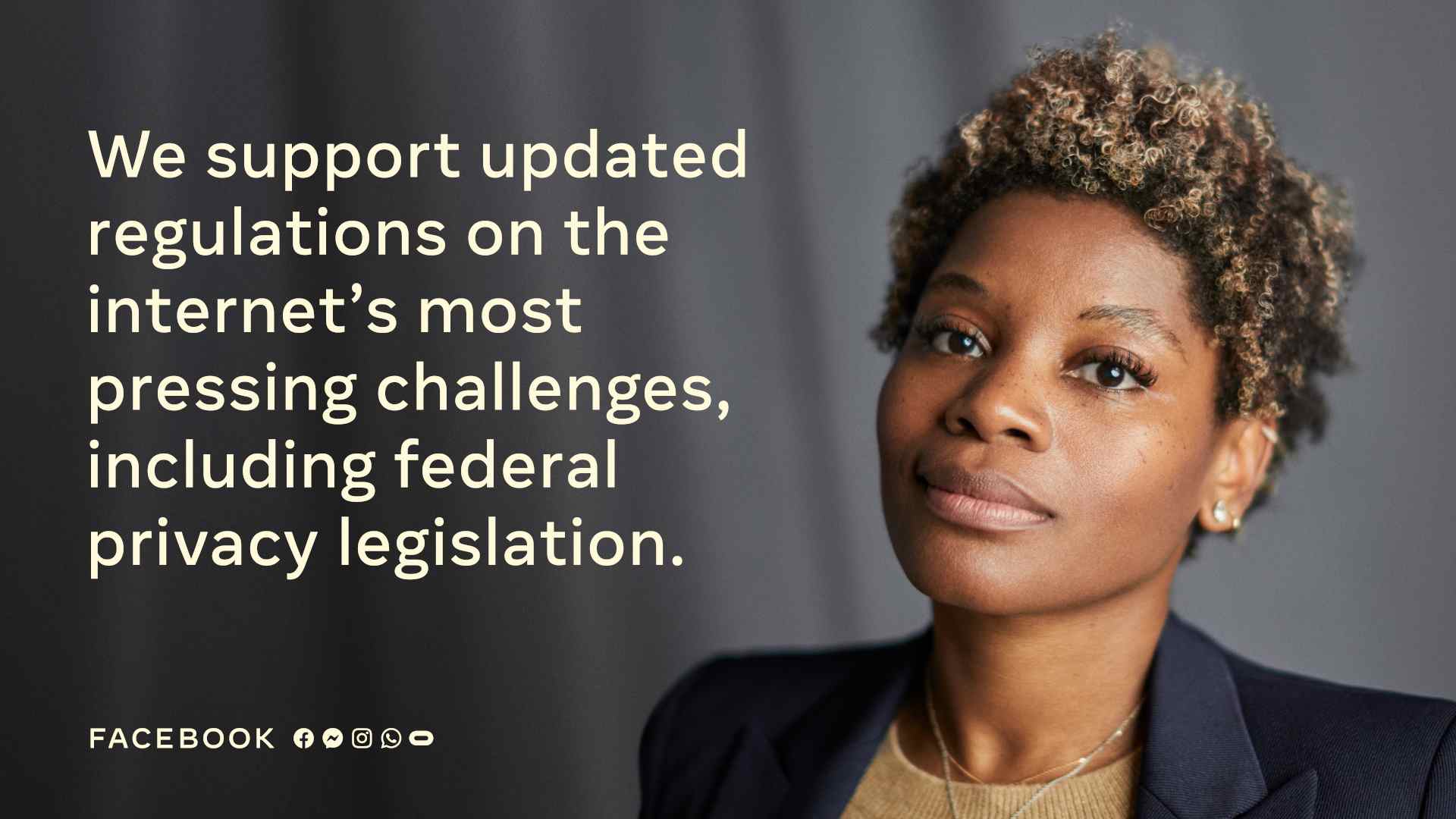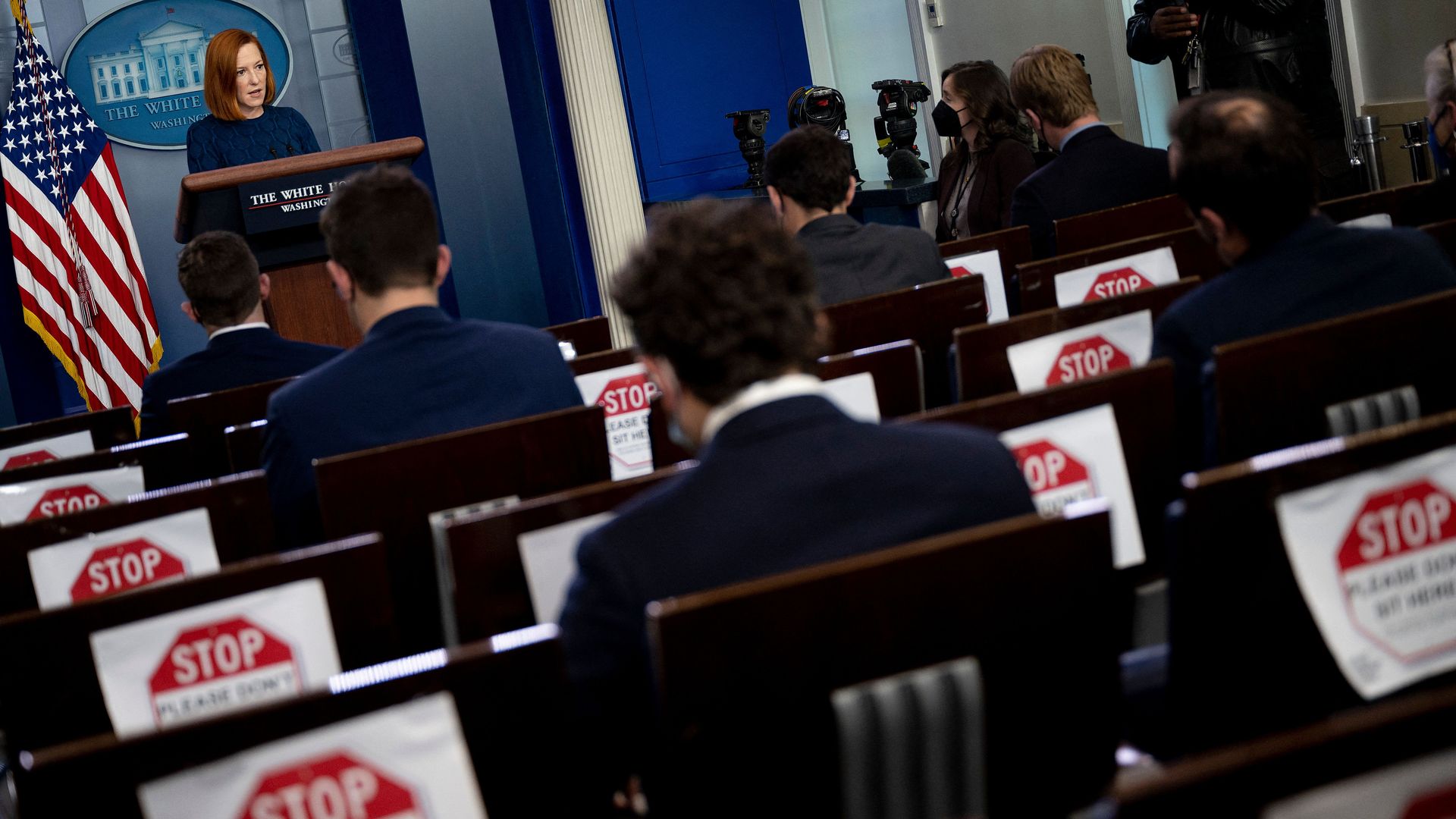Plus: Scoop - Election changes | Monday, January 10, 2022
| | | | | | | Presented By Facebook | | | | Axios Sneak Peek | | By the Axios Politics team ·Jan 10, 2022 | | Welcome back to Sneak. Smart Brevity™ count: 927 words ... 3.5 minutes. Edited by Glen Johnson. | | | | | | 1 big thing: House proxy voting booms |  | | | Congressional staffers, reporters and others queue up in the Capitol Visitors Center today to await coronavirus tests. Photo: Brendan Smialowski/AFP via Getty Images | | | | More than a third of House members are prepared to vote remotely this week — a reflection of the deep coronavirus fears coursing throughout the highest level of government, as well as the embrace of proxy voting for other reasons, Axios' Hans Nichols reports. Why it matters: Proxy voting was enacted to allow representatives to reduce their risk of contracting the virus, but it has also undercut the convening of the People's House and allowed alternative political activity, including foreign trips and fundraising. - Exacerbating the problem is the uneven application of COVID-19 reporting requirements and practices in Congress.
- There's no requirement for senators or representatives to declare their vaccination or COVID status, although Reps. Alexandria Ocasio-Cortez (D-N.Y.) and Nancy Mace (R-S.C.) have been among the most recent to announce positive results.
- House members are punished for refusing to wear a mask in their chamber, yet two Georgia Republicans have racked up more than $100,000 in combined fines in defiance of the rule.
Driving the news: Axios found that 158 lawmakers had active proxy voting letters on file with the Office of House Clerk before tonight's 6:30pm quorum call. - Fifty-eight of those letters alone arrived during the day. They designated a colleague to cast a vote on another member's behalf.
- House Speaker Nancy Pelosi has extended the use of proxy voting until Feb. 13, and some lawmakers privately expect her to prolong it for another 45-day stretch.
Keep reading. |     | | | | | | 2. Scoop: Committee proposing Electoral Count Act changes |  | | | Sen. Ted Cruz and Rep. Paul Gosar join forces to object to the certification of Arizona's election results on Jan. 6, 2021. Photo: Stefani Reynolds/Bloomberg via Getty Images | | | | The House Administration Committee — another key player in the building drive to reform the Electoral Count Act — will call for at least four changes to the century-old legislation in a report being released as early as this week, Axios' Sophia Cai has learned. Why it matters: Calls to update the act, which dates to 1887 and was the vehicle by which former President Trump hoped to reverse his 2020 election loss, have been a rare area of bipartisan interest in both chambers. What we're watching: The committee, chaired by Rep. Zoe Lofgren (D-Calif.), will issue a 40-page report containing three sections: a history of the Electoral Count Act, a synopsis of the problems and a review of proposed reforms. Key proposed reforms will include: - Raising the threshold for an objection to certifying a state's election results from the tandem of one senator and one House member to a higher number.
- Clarifying that the role of the vice president is ceremonial in certifying presidential elections.
- Putting in place requirements for what an objection has to be in order to count as an objection.
- Clarifying the number of Electoral College votes required to become president when objections for a state with a certain number of Electoral College votes are being adjudicated.
A concurrent House bill, which is being shepherded by Lofgren and Rep. Jamie Raskin (D-Md.), is close to being completed. Keep reading. |     | | | | | | 3. Mapped: NATO's mission creep |  Reproduced from Wall Street Journal; Map: Axios Visuals Russian officials drew their talking points for today's meeting in Geneva with U.S. officials from a draft Kremlin treaty proposal that would force NATO to withdraw to its 1997 borders, Axios' Zachary Basu writes. Why it matters: The question of whether NATO could expand to the east, which Russia has viewed as an existential threat, is at the heart of the superpowers' current conversation. Under the Russian request, the alliance would be turned back to before Poland, the Baltic states, the Czech Republic and other Eastern European countries joined it. - The U.S. and NATO view that as a complete non-starter.
- A failure of diplomacy this week, though, could lead President Vladimir Putin to attempt to re-establish Russia's Cold War "sphere of influence" by force, beginning with an invasion of Ukraine.
Flashback: Putin's grievances are driven by a misrepresentation of history, beginning with his claim the West promised during negotiations over the reunification of Germany in 1990 that NATO would expand "not one inch eastward." - It's true then-Secretary of State James A. Baker III used that language in early negotiations with Russia, but that provision never made it into the final treaty reunifying Germany, as Baker's biographer Peter Baker wrote in The New York Times.
Keep reading. |     | | | | | | A message from Facebook | | Why Facebook supports updated internet regulations | | |  | | | | Rochelle is one of many experts working on privacy at Facebook—to give you more control over your information. Hear more from Rochelle on why Facebook supports updating regulations on the internet's most pressing challenges, including federal privacy legislation. | | | | | | 4. Democrats desperate to pass election reform |  | | | Illustration: Maura Losch/Axios | | | | On the somber sidelines of former Sen. Johnny Isakson's funeral in Georgia last week, Sens. Chris Coons (D-Del.) and Raphael Warnock (D-Ga.) discussed a piece of urgent business: the importance of passing election reforms. Why it matters: The exchange underscores the existential stakes not only the Democratic Party but some of its individual leaders attach to voting rights legislation, Axios' Alayna Treene writes. The setting was appropriate, given Georgia Republicans have enacted a series of changes that could impact the election efforts of Warnock and other key Democratic candidates. The big picture: President Biden will weigh in tomorrow, when he flies to Georgia to publicly make the case for passing the Freedom to Vote Act — legislation pushed by Sen. Joe Manchin (D-W.Va.). - Biden — who served in the Senate for 36 years — will go further than he has yet in calling on Democrats to bypass the Senate filibuster.
- Sources familiar with his speech tell Axios he'll echo many of the points he made last week in his address making the anniversary of the Jan. 6 insurrection as justification.
- He spoke about the importance of protecting the integrity of U.S. elections and blocking Republican voter suppression efforts nationwide.
- This week's remarks will be designed to be a national call to action, an administration official said.
Keep reading. Go deeper: "Voting rights leaders to snub Biden speech." |     | | | | | | 5. Pic du jour |  | | | Photo: Jim Watson/AFP via Getty Images | | | | At the other end of Pennsylvania Avenue, White House press secretary Jen Psaki addressed reporters in a socially distanced Brady Briefing Room. |     | | | | | | A message from Facebook | | Facebook is committed to your safety and security online | | |  | | | | We've invested more than $13 billion in teams and technology to stop bad actors and remove illicit content. Since July, we've taken action on: - 1.8 billion fake accounts.
- 26.6 million violent and graphic posts.
- 9.8 million terrorism-related posts.
Find out how we're working to enhance safety. | | | | 📬 Thanks for reading. A reminder your family, friends and colleagues can subscribe to Sneak or any of Axios' other free local and national newsletters through this link. |  | Bring the strength of Smart Brevity® to your team — more effective communications, powered by Axios HQ. | | | | | | Axios thanks our partners for supporting our newsletters. If you're interested in advertising, learn more here.
Sponsorship has no influence on editorial content. Axios, 3100 Clarendon Blvd, Suite 1300, Arlington VA 22201 | | | You received this email because you signed up for newsletters from Axios.
Change your preferences or unsubscribe here. | | | Was this email forwarded to you?
Sign up now to get Axios in your inbox. | | | | Follow Axios on social media:    | | | | | |










No comments:
Post a Comment